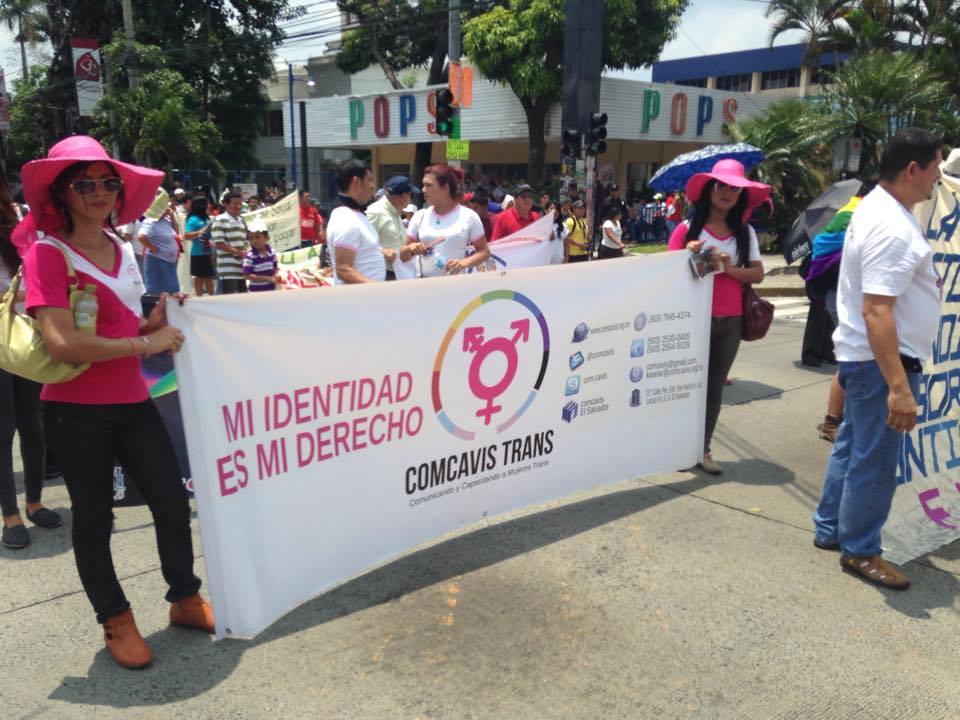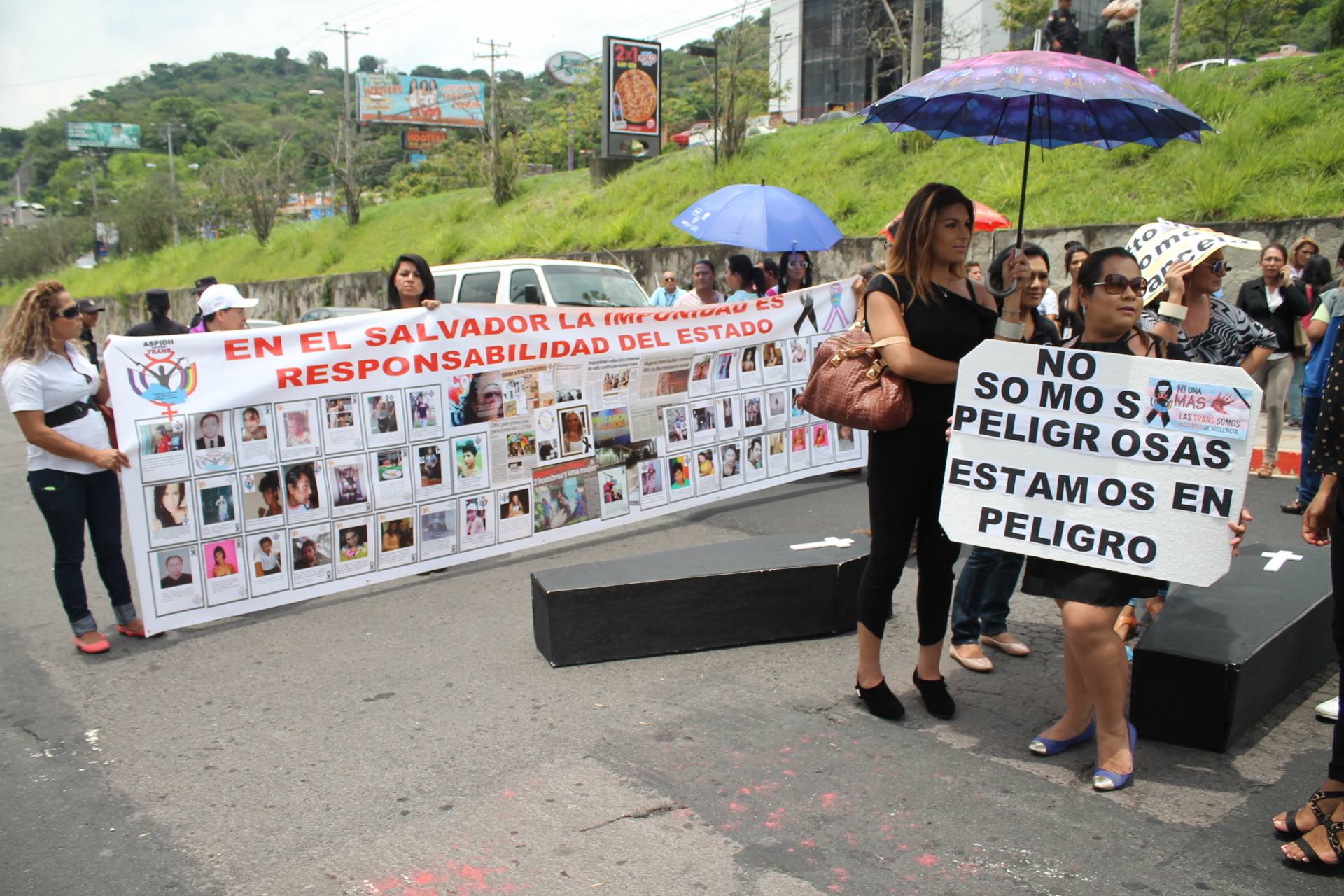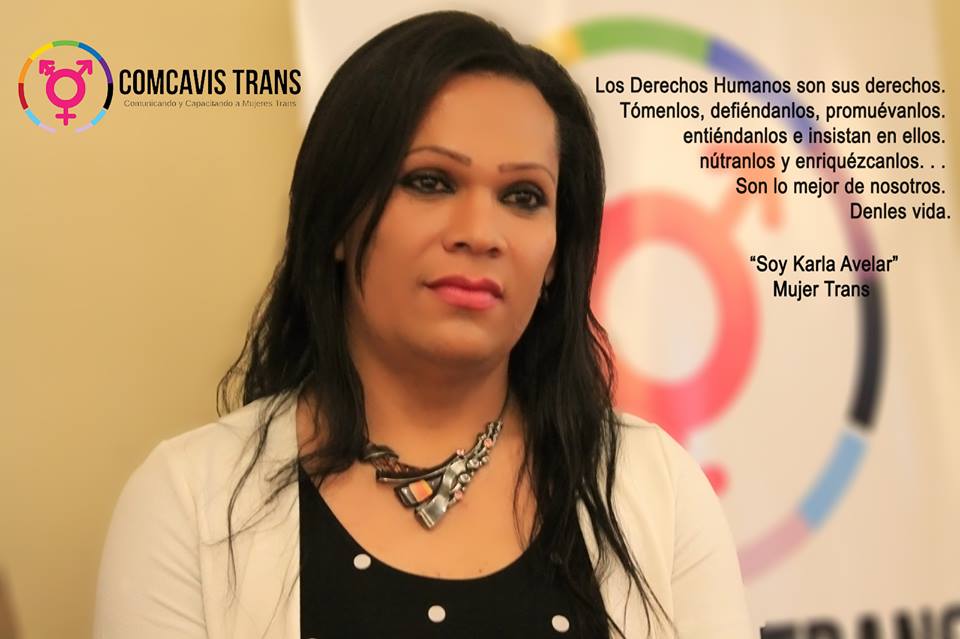Author: Lisa Haugaard
Editor’s Note: This article is the sixth in this series on violence in El Salvador.
After the murder of three transgender activists and the brutal beating of a transgender man, the Salvadoran legislature passed a hate-crime law in September 2015, placing El Salvador among a handful of Latin American nations with such laws to protect LGBTI citizens. The reforms to the legal code increased the sentences of those convicted of killing someone because of their sexual orientation, race, ethnicity, political affiliation or gender. Those convicted of such murders would now face sentences of 30 to 60 years, while those convicted of threatening a person because of the same factors would face 3 to 6 years in jail.
This legal advance, while significant, by itself does not guarantee protections. “For the first time in our history, violence against the LGBTI community has strong penalties. But if the judges don’t apply it, if the police don’t,” the law will be all but meaningless, cautioned Karla Avelar, a transgender human rights defender. And the new law is not retroactive. Some 500 past acts of violence against LGBTI individuals that activist organizations have documented since 1993 would not be covered.
In her hole-in-the-wall office in San Salvador where she directs the dynamic nonprofit COMCAVIS TRANS, Avelar talked to us about the violence facing LGBTI Salvadorans. Violence comes from gang members, from family members, neighbors—and from members of the police.
At least 85 LGBTI persons in El Salvador have been murdered between 2008 and 2014, according to the International Human Rights Clinic at the American University Washington College of Law. While all members of the LGBTI community are vulnerable, transgender people are especially at risk. According to Avelar, many transgender people have reported rape, extortion, kidnapping, and torture by the police. “Many of us, when we see police, don’t see protection, but rather we feel panic.” For LGBTI Salvadorans, reporting a crime is difficult. “Most police see us and label us as thieves, criminals. They don’t even see us as valid witnesses.”
Security forces were the most often reported source of physical and verbal aggression, at 55 percent, followed by family members at 16 percent in 171 calls received in 2014 by a hotline for the LGBTI community to report incidents of discrimination and violence, according to the State Department’s 2014 human rights report.

|
Aldo Alexander Peña, a transgender man working for the Salvadoran capitol police, was brutally beaten by members of the National Civilian Police June 27, 2015, after a disagreement with a bus driver. Earlier that same day, he marched with his girlfriend in the gay pride parade. He suffered several broken ribs, a skull fracture, and damage to his left eye socket.
“José” suffered a brutal gang rape by gang members and a sexual assault by a teacher. But he reported none of his attacks to the police, as he did not trust them to protect him.
Police officers physically and verbally abused a gay adolescent in one 2011 case. As described in an article published by the American Bar Association, “According to the victim, after abusing the victim, the police made a telephone call and three gang members subsequently appeared and beat the victim unconscious.”
Francela Méndez Rodríguez, a prominent transgender activist, was murdered by unknown assailants on May 31, 2015 while visiting a friend in the countryside, who was also murdered.
LGBTI organizations such as Entre Amigos have received death threats, break-ins of their offices, and attacks on activists that appear to be related to their public advocacy for their rights.
“I have suffered the same,” said Karla Avelar, “I have fourteen bullets in my body. The worst is that our society approves violence against us, including our own families sometimes. I am forty years old now. I never thought I would live this long. I am truly old.”
These are just a few examples of a deeper problem within El Salvador. To make matters worse, the Attorney General’s office is not vigorously prosecuting these cases and fails to register attacks against LGBTI persons as hate crimes.

|
El Salvador’s official human rights ombudsperson’s office, led by David Morales, does cover abuses against LGBTI persons and urges other government agencies to improve protections. “There is an absolute indifference towards investigating and prosecuting these crimes, which has created a pattern of deliberate impunity that is totally unacceptable,” said Morales. The ombudsperson publicly urged the police and Attorney General’s office to “investigate these crimes in an efficient and diligent manner, to see if there is a hate motive towards gender expression or sexual orientation of the victims.”
Some LGBTI Salvadorans have fled the country, seeking asylum in the United States, Costa Rica, and other countries. Neila, a 26-year-old beautician, fled El Salvador in December 2015 after a knife attack in which she was stabbed 58 times. “This is all because my gender identity differs from what is traditional,” said Neila to the United Nations High Commissioner for Refugees (UNHCR). She is now in Mexico seeking asylum.
COMCAVIS TRANS has accompanied 60 cases of asylum in the last year, almost all of them for transgender people. According to an analysis published by the American Bar Association, it is challenging for U.S. lawyers to defend asylum for LGBTI asylum seekers fleeing countries like El Salvador where Department of Homeland Security attorneys can argue there have been advances in the legal framework for LGBTI rights, gay pride parades take place, and LGBTI groups openly operate. Asylum lawyers must argue that “violence toward the LGBT community persists despite official policies and laws that protect the community,” while “LGBT advocates and those who frequent pride events are at an even higher risk of harm than those who hide their sexual orientation or gender identity.”
Beyond protection from violence and an end to impunity for these crimes, LGBTI activists in El Salvador are also fighting for an end to discrimination. The Salvadoran government has taken some tentative steps in this direction, but this has yet to result in the sea change needed. In 2010, the Salvadoran government established a Directorate on Sexual Diversity in its Secretariat for Social Inclusion to promote an end to discrimination. A positive executive action, decree 56 issued in 2010 by the government of Mauricio Funes, forbids discrimination against LGBTI individuals by public employees. However, this decree fails to include penalties for noncompliance, is not sufficiently included in training of public employees, and does not cover the private sector.
Transgender activists are also fighting for the right to change their names and genders. Lacking this right affects a transgender person’s ability to study, work, and even vote. LGBTI Salvadorans also continue to struggle for adequate health care coverage, and against severe discrimination in the workplace. Marriage equality is still far in the distance.
Although the government has taken some legal steps to protect certain rights for LGBTI citizens, in practice, the laws are often ignored or blatantly violated, leaving the LGBTI community in El Salvador vulnerable to discrimination and brutal violence.


